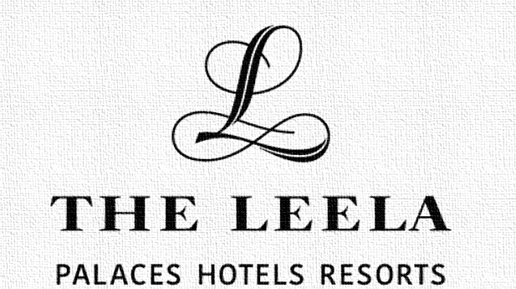The
Leela
About Leela Hotels
Incorporated in 2019, Schloss Bangalore operates as India’s only institutionally owned and managed pure-play luxury hospitality company under “The Leela” brand. Renowned globally, “The Leela” ranked among the top three hospitality brands in 2023 and 2024, following consecutive #1 rankings in 2020 and 2021 by Travel + Leisure World’s Best Awards. Established in 1986, the brand has a strong legacy in Indian luxury hospitality, with over 250 awards earned since January 2021. The portfolio includes 12 operational hotels with 3,382 keys, making it one of India’s largest luxury hospitality entities by key count. Strategically positioned across 10 key Indian business and leisure destinations, it represents 18% of luxury keys in these markets. Plans are underway to expand with eight new properties, adding 833 keys by 2028. This growth includes modern palaces, resorts, and ventures into wildlife, spiritual, and heritage tourism, broadening its geographic reach and diversifying its offerings.
About the industry
The Indian hospitality industry, and specifically the
luxury hospitality segment, is positioned for measured growth. In 2023, travel
and tourism contributed 6.5% to India’s GDP, below the global average of 9.1%,
suggesting potential for further development. The organised hotel sector in
India consists of approximately 375,000 keys, of which only around 29,000 are
in the luxury category. This equates to 23 luxury keys per million people,
significantly lower than countries such as Australia (973) and Thailand (690),
indicating under-penetration in this segment.
Between FY24 and FY28, demand for luxury rooms is
projected to grow at a compound annual growth rate (CAGR) of 10.6%, while
supply is expected to grow at a slower pace of 5.9%. As a result, RevPAR
(Revenue per Available Room) for the luxury segment, which was more than twice
the industry average in FY24, is expected to increase by around 1.5 times by
FY28. This growth outlook is supported by macroeconomic factors such as a
projected doubling of India’s GDP by 2030, increased infrastructure investment,
rising domestic and international tourism, and evolving consumer preferences.
Institutional investment may also support scalability, based on international
precedents.
Strengths
- Leading luxury brand with global appeal and rich heritage
- Iconic-owned hotels in high-barrier-to-entry luxury markets
- Comprehensive luxury ecosystem diversifying revenue across hospitality services
- Proven operational efficiency through an active asset management approach
- Strong focus on sustainability and renewable energy initiatives
- Experienced senior management and a well-diversified distinguished board
- Supported by Brookfield, a global investor with local expertise
Risks
- Deterioration in brand quality can adversely affect operations and reputation.
- Heavy revenue dependence on five flagship hotels affects financial stability.
- Persistent losses from prior years risk future financial health sustainability.
- Negative cash flow history challenges future operations and business continuity.
- Substantial debts require significant cash flows for servicing and growth.
- Exposure to risks from hotel renovations and delayed new constructions.
- Regulatory complexities may impact compliance, operations, and market positioning.
- Cyclical and seasonal industry fluctuations significantly affect financial performance.
Key strategies
- Optimising
existing assets: The company plans to improve the performance of
current properties by increasing room yields, enhancing food and beverage
operations, and implementing cost control measures. Select properties will
be upgraded to increase room inventory and add high-yield features such as
spas and clubs.
- Portfolio
expansion: New hotel developments are proposed in domestic markets
with tourism or religious significance, including Agra, Srinagar, Ayodhya,
Ranthambore, and Bandhavgarh. International growth will be considered in
regions with high Indian tourist activity, such as the Maldives and Dubai.
Project selection will be based on expected return on capital and
alignment with brand standards.
- Hotel
Management Agreements (HMA): The company will seek to expand through
management contracts, which require less capital investment compared to
ownership. These contracts will be structured to include fixed and
performance-linked fees, with brand and operational control maintained
from early stages of development.
- Brand
extensions and diversification: New revenue sources will be pursued
through branded serviced residences and luxury apartments, as well as the
introduction of private members’ clubs in key cities. These initiatives
are intended to utilise existing brand recognition while targeting
adjacent customer segments.
- Capital allocation and efficiency: Growth initiatives will be undertaken with a focus on capital efficiency. This includes evaluating ownership versus management models for each project, targeting high-yield projects, and maintaining financial discipline. Cost management and operational systems will also be areas of continued focus.









0 Comments